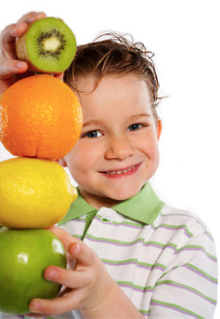Healthful feeding during pregnancy and the first steps of life
The healthful feeding is one of the most important means that we have to take care of our health; feeding brings us the necessary nutrients to make us feel and work well, and it reduces the risk of suffering chronic diseases. The feeding of the pregnant woman and the children during the first stages of life is essential for the growth and development during the childhood and to prevent diseases in the adult life.
When a pregnant woman eats well, she is helping to guarantee that her baby receives all the necessary nutrients for a healthful development. An appropriate diet includes: protein foods (meat, chicken, fish, legumes, nuts), avoiding those with high levels of saturated fats; cereals (bread, pasta, rice, cereals), trying most of them to be integral; dairy products (milk, cheese, yogurts); fruits and vegetables.
In the developed countries, it is not usual to find malnutrition problems that could cause an unfavourable evolution of the pregnancy, although there are still isolated cases in marginal groups. Nevertheless, for a few years now there has been a making of studies that have allowed identifying a series of nutrients (such as the iron, folic acid, vitamin D and calcium) whose deficiencies could produce alterations both in the mother and in the new born. Thanks to those studies, the intake of these nutrients is highly recommended from the preconception phase, and also the administration of vitamin and mineral supplements.
There are also other nutrients whose deficient ingestion during the pregnancy could increase the risk of anomalies in the foetal and children development if there are other predisposed factors in the mother, such as previous diseases, genetic factors or environmental exposures. Nevertheless, the existing studies have not yet contributed with enough evidences to develop preventive recommendations. Among these nutrients we can find antioxidant vitamins and polyunsaturated fatty acids, that are being the focus of many studies.


